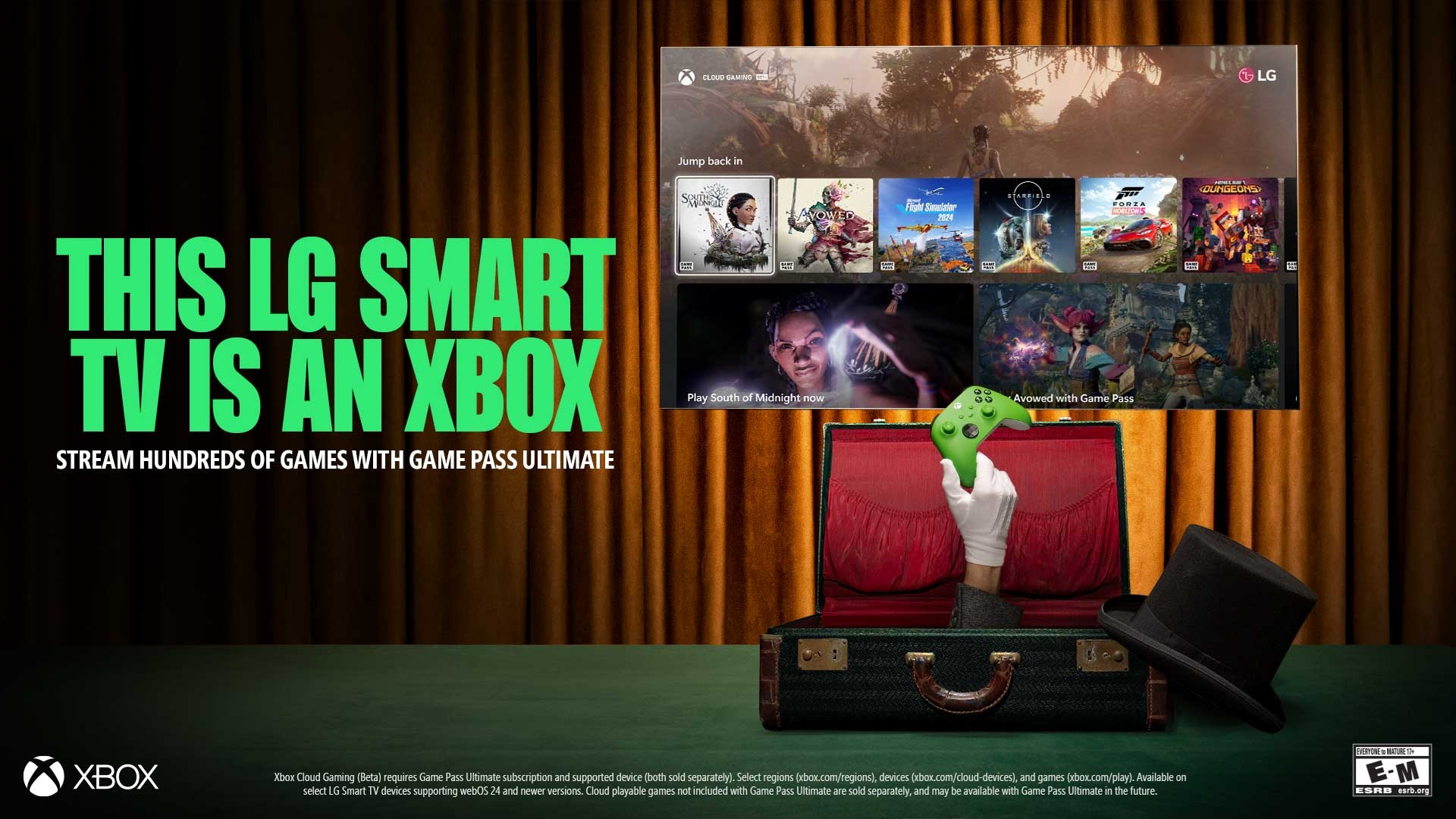The grand software bazaar of Reddit: The secret market that peddles PC software for less
It's your one-stop-shop for anything and everything software-related.
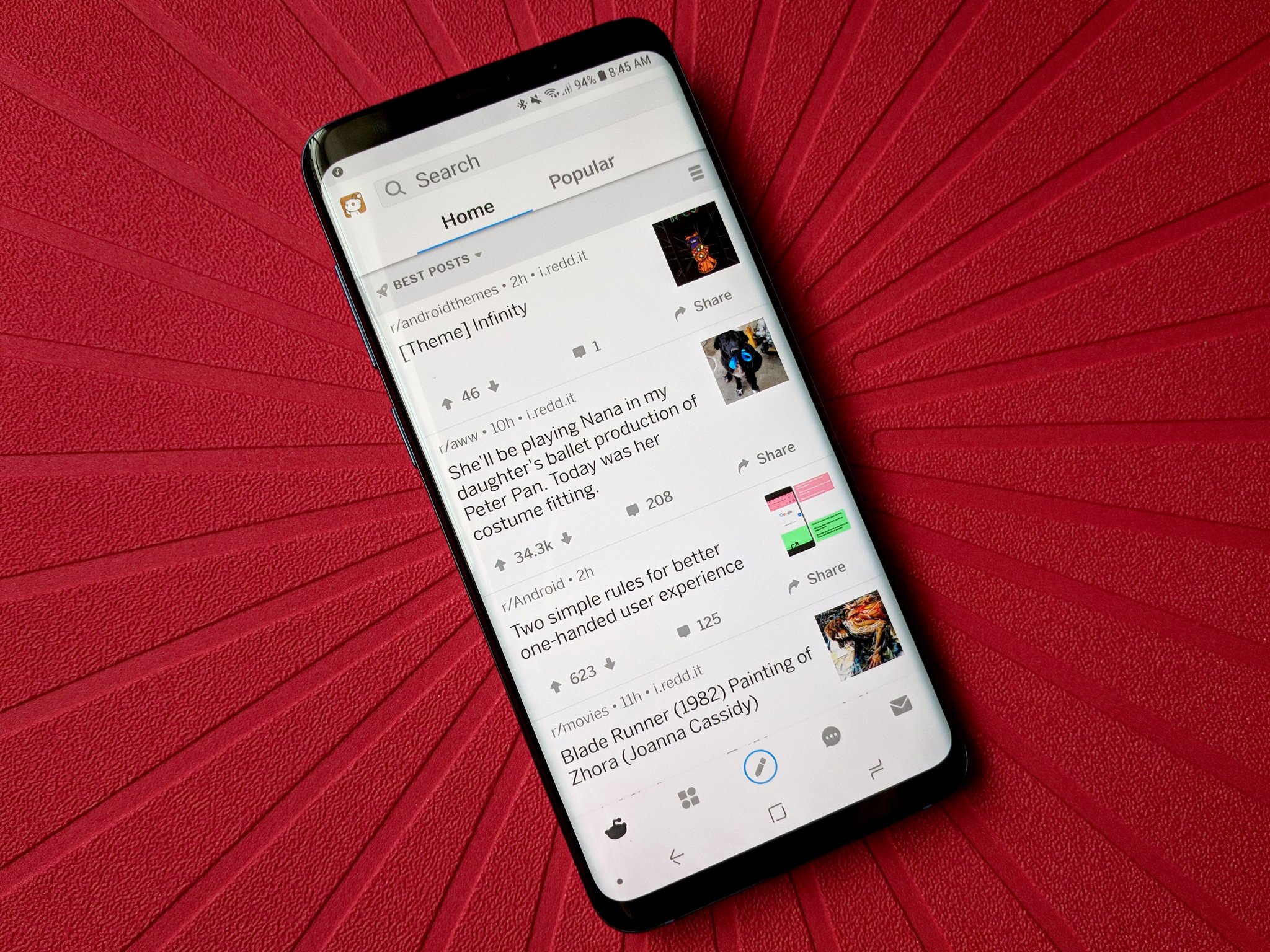
Reselling: Consumer right, or menace to corporations? That's the question underpinning every gray market on the internet, especially when it comes to software.
It doesn't matter what software it is: If it comes as part of a promotional bundle or is available as a key, it will be bought, sold, and traded online. There are numerous online venues for that sort of thing, ranging from eBay to extremely shady places such as G2A. But there's only one place with virtually no rules where your purchasing of a good is equivalent to attending a cyber garage sale: Reddit.
On the surface, Reddit is a place for dumb memes and arguments about politics. And, even if you scratch past the surface, that's still what the site's about. But if you dig deeper, you'll find communities for anything you could imagine, including those dedicated to buying and reselling legal copies of games and software for way, way below the manufacturer suggested retail price.
What if you could get Outriders on day one of its launch for a few bucks, or even just pennies?
This series of subreddits, which will be defined as the Reddit gray market for the sake of conciseness, trade keys in exchange for other keys, gift cards, money — you name it. If someone wants feet pics in exchange for a copy of Outriders, it'll happen. Mind you, that sort of oddball transaction is just a hypothetical example, but if the buyer and seller are both up for it, anything goes.
Now, that might not sound too crazy (relatively speaking) in and of itself. But what if you could get Outriders on day one of its launch for a few bucks, or even just pennies? What if you could do the same with Resident Evil Village or any other AAA game on day one of its release?
That's where the gray market gets interesting. Thanks to numerous factors, including bundles and promotions saturating the market with copies of new AAA games and Redditors with little care for economic norms, just about anything can be yours for any price — if you find the right trader.
The Reddit gray market: How it works
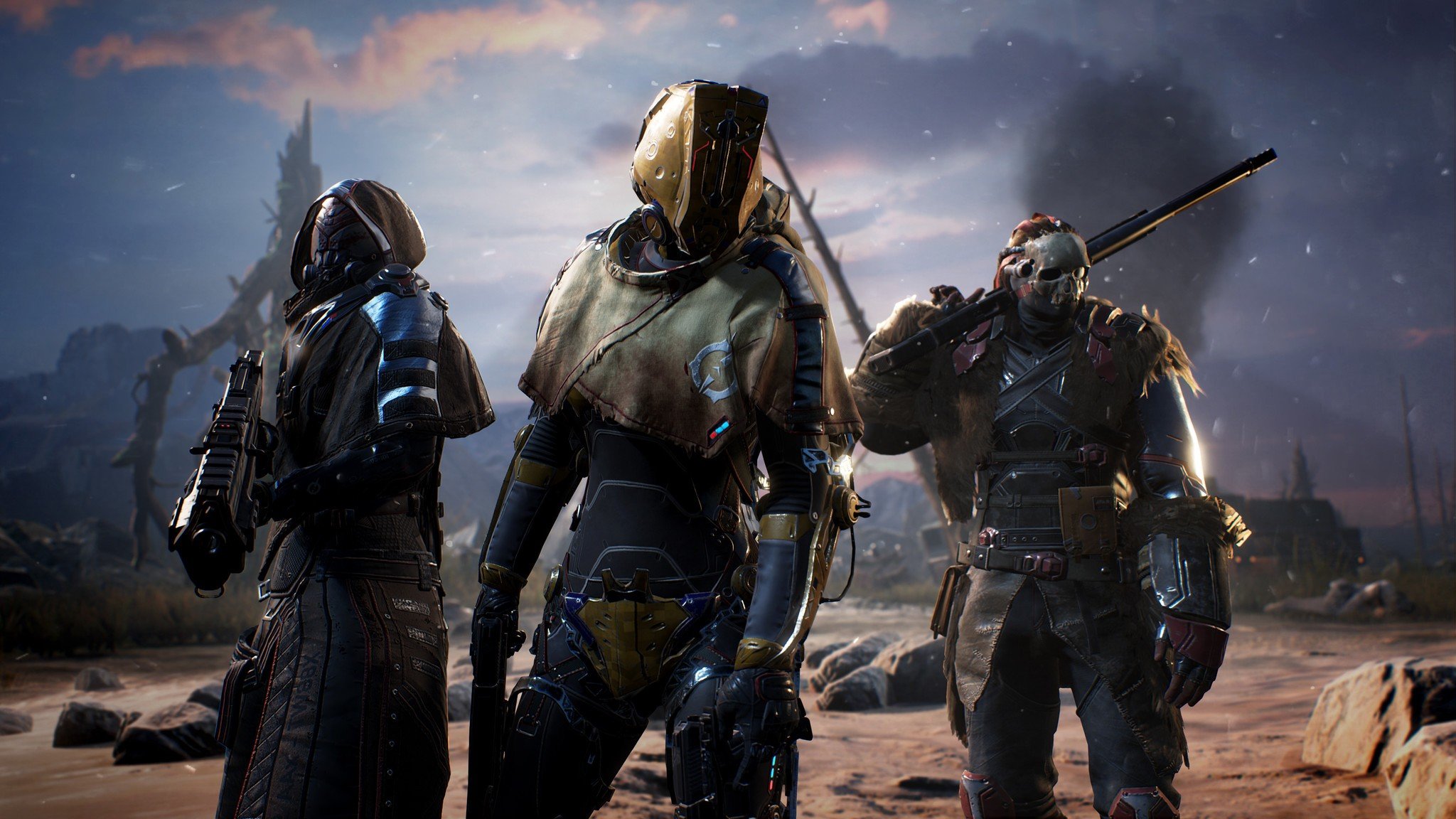
As mentioned above, there are alternatives to Reddit — see eBay, or the G2A and Kinguin types of sites. Those will be discussed later on. But none of them hold a candle to what can be achieved via the Reddit gray market.
Get the Windows Central Newsletter
All the latest news, reviews, and guides for Windows and Xbox diehards.
Here's how it works:
- Traders acquire bartering ammo. This can take the form of free games bundled with GPUs, CPUs, and general gaming hardware ("buy an RTX notebook, get Outriders free," "buy an Intel Core i9 processor, get Marvel's Avengers free," and so on and so forth), leftover game keys gathered from sites such as Humble Bundle or Fanatical, Microsoft Office licenses, or anything else you can imagine being traded on a digital storefront. There are also subs for trading physical hardware if you want to bring real-life shipping logistics into the mix.
- Traders find interested parties who are game to swap goods with them. The rules of what can be swapped are more or less nonexistent once both parties take the deal to private messages or chats, so you can imagine what kind of deals are possible. Want to swap your Steam trading cards for an actual AAA game, or some bizarre digital knick-knack for cryptocurrency? It's all doable.
- The trade commences and, ideally, both parties get the goods they want at ridiculously low prices. However, as you might figure with a wild west marketplace such as Reddit, there are absolute boatloads of scammers and con artists looking to take advantage of rookies.
Your three spare copies of Yoku's Island Express can turn into a copy of Resident Evil Village.
The whole process can, if both parties are keen and efficient, take less than 60 seconds. Not bad, right? And again, let's say you have a few leftover Steam keys from an IndieGala or Fanatical bundle — keys you're never going to touch, each with values of a few pennies or dollars. If you find an inpatient enough trader who wants those games and happens to have a promotional copy of a major, brand-new AAA title handy (like an NVIDIA-bundled copy of Outriders), then you can get ludicrous returns on your initial investment.
That "buy low, sell high" philosophy is all it takes. If you're crafty, you can keep re-trading games (a few pennies or dollars' worth of Humble Bundle leftovers, for example) for higher-value games until, all of a sudden, your three spare copies of Yoku's Island Express turn into a series of deals that result in you getting Resident Evil Village. That sort of thing takes time, timing, and skill, but it's possible.
The Reddit gray market: Risks and consequences
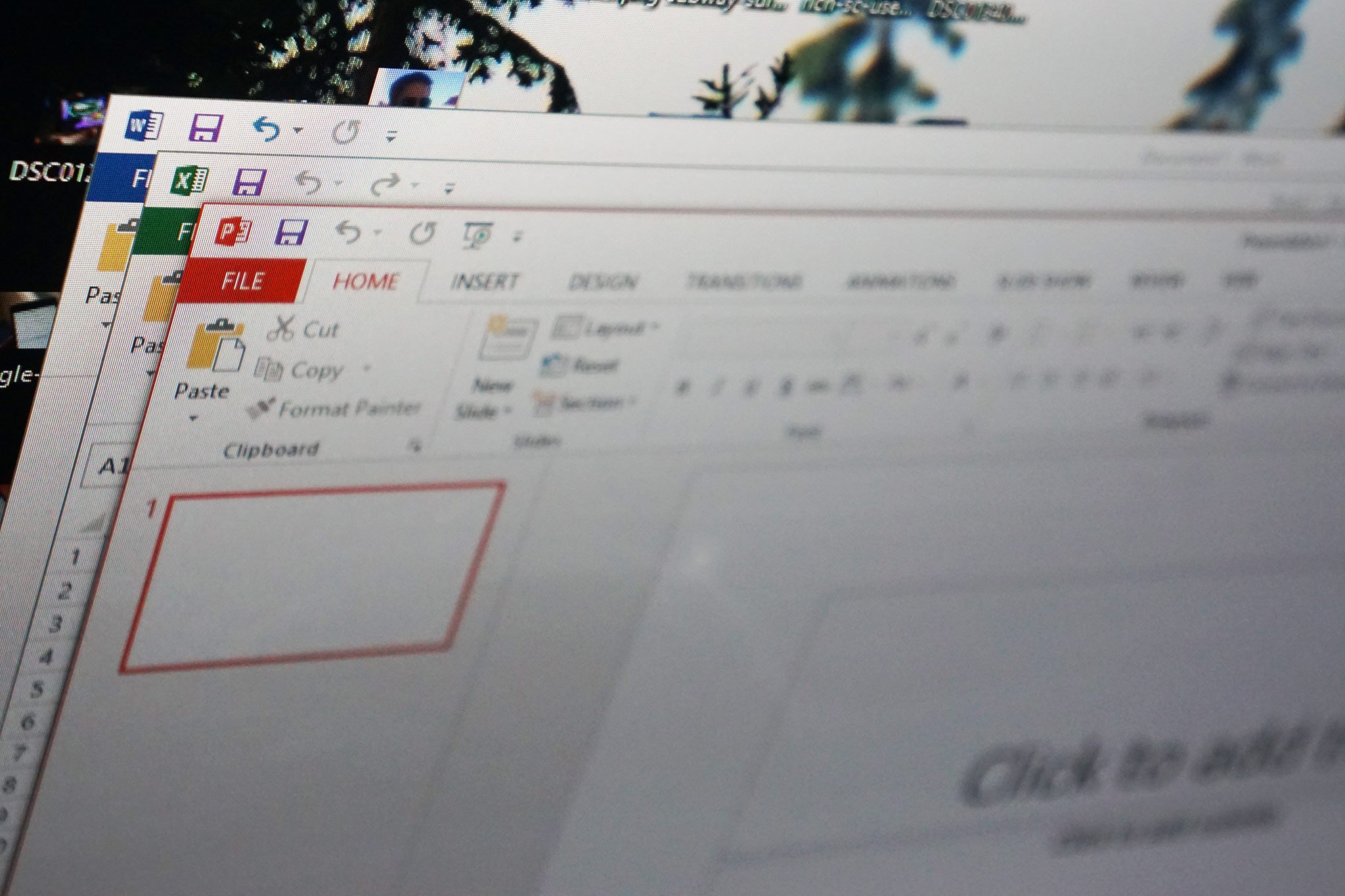
From the trader's perspective, there are two major dangers: Scammers and the companies from which legal software is acquired.
Scammers use a laundry list of tricks to bait newcomers into handing over valuable game keys and product licenses, including:
- Private messaging instead of commenting on public trade posts (because they're banned from the respective subreddit and can't comment).
- Imitating trustworthy traders with near-identical accounts.
- Forging duplicate versions of reputation pages where trustworthy users log their successful trades (similar to eBay buyer/seller feedback pages).
Given the ingenuity of the Reddit community, scammers invent new methods rapidly and at random. Still, the above items are easy ones to look out for (especially with regards to forged pages — you can check to see if the URLs they send you are static phonies or are actually bound to Reddit.com). There's also a trusty tool that a ton of communities on Reddit use in unison with each other to track and ban every scammer they come across, dubbed the "Universal Scammer List."
As for the other major danger to traders — the companies providing the goods themselves — they're not as easy to avoid. Companies such as NVIDIA and AMD have done their best to curtail reselling of promotional game copies by requiring hardware verifications and direct account sign-ins before a promo game can be acquired. Yet, even with keys placed behind multiple obstacles or keys being taken out of the equation altogether, traders still find ways to get these games to buyers and sellers via increasingly crafty workarounds.
Some companies want to punish resellers.
Some companies take it further than just making things hard for traders, though. Some companies want to punish them. Take, for example, Humble Bundle, which is one of the core sites used to acquire tradeable games. Not too long ago, reports started cropping up concerning Humble Bundle outright banning users that it connected with trading activities and revoking keys thereafter, even if they'd already been redeemed by the trader's buyer.
Worse, those bans reportedly meant that if the user had keys in their Humble Bundle account they hadn't yet used, they'd be locked from them permanently. So even if they planned to use a few of them for personal use rather than trading, Humble Bundle would keep the funds spent on acquiring them while also cutting off access from the product paid for. It was a scary time in trading circles, by all accounts, with claims that the company was violating consumer rights laws as well as EU digital license reselling laws.
Why might Humble Bundle go so far in its efforts to end trading? It could be becaus reselling affecting the business' bottom line. After all, Humble depends on developers and publishers parterning with it. If those devs and publishers see their games ending up on reselling sites where they don't get even a penny of revenue from sales, and they determine Humble is at the center of the distribution headache, then why would they keep partnering?
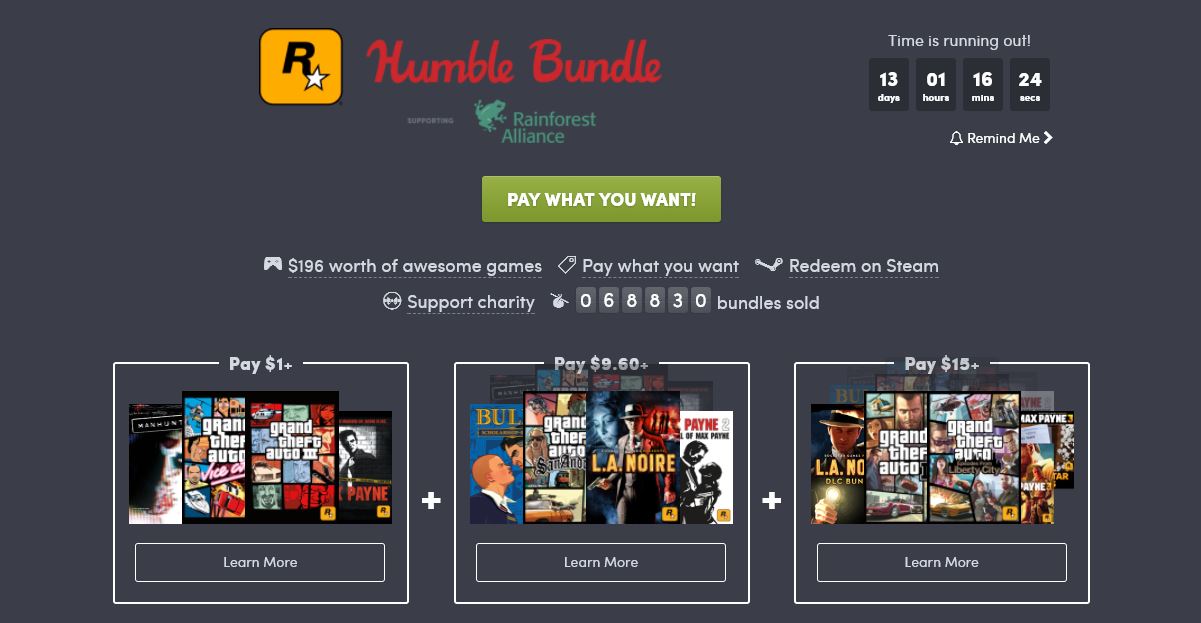
Recently, Humble briefly made it so that charitable contributions on its site could only go up to 15% of each purchase's total price. That was a far cry from the previous options, which enabled up to 100% to go to charity for certain sales. Due to backlash, Humble almost immediately reverted to its original model, but the fact that such a change was envisioned in the first place says quite a bit.
Some attribute the change to "greed" on the part of Humble's current ownership (IGN). Still, there is another perspective: Have Humble sales gone down so much because of re-trading-spurred partnership losses that business realities are forcing the company's hand?
Humble Bundle's recent actions may have nothing to do with traders, but what if they do? After all, why have NVIDIA and AMD gone to such lengths to prevent promotional copy reselling, if not because the consequences on their ends are unsavory?
AMD, Intel, and Humble Bundle did not respond to requests for comment on this story. NVIDIA declined to comment. In response to questions regarding the reselling and trading of legally obtained licenses and keys of Microsoft products such as Windows operating systems and MS Office, a Microsoft representative sent a link to a Microsoft security blog post about counterfeiting and fraud.
The Reddit gray market: The people behind the digital curtain

What do a Polish food R&D worker, an Indian neuroscience assistant researcher living in Japan, and a Croatian in the paper-making business all have in common? They like to trade on Reddit.
"When those same publishers want to charge me 60€ for a new game & my monthly pay is 600€, then I have a problem."
Though it's possible to talk about the gray market as an amorphous body of ants raging against a corporate machine and manufacturer-suggested retail prices, it's not fair to the humans who make the gray market possible. They're regular people who just want to play some games and acquire digital goods at a price within their budget.
Take, for example, /u/dinkomaricic. He's from Croatia and has an occupation making the paper that's used in card boxes. He's not a commercial reseller or anyone looking to take advantage of economic systems for excessive gain — he simply wants to play legal copies of games at a price he can afford and has been doing so via trading for two years.
When asked about his stance on trading, given that it tends to violate companies' Terms of Service (such as Humble Bundle's), he kept it frank with me.
"I understand it's against T.O.S., but (biiiiiiiiiiig BUT), when those same publishers want to charge me 60€ for a new game & my monthly pay is 600€, then I have a problem with their T.O.S.," dinkomaricic said, raising a key point in defense of the gray market: In a world where even official regional pricing isn't enough sometimes, why shouldn't a person buy from a reseller to obtain a legal copy of a game? The alternatives are piracy or not having the software at all. Neither of those will have the publisher-side benefit of boosting the game's activity, analytics, and player count on, say, Steam.
"I probably will stop buying bundles altogether if they bring a full stop to game trading via their efforts."
dinkomaricic also had some choice words regarding major publishers and their pricing schemes, bringing up Activision CEO Bobby Kotick's supposed $200 million stock bonus amid mass layoffs at the company (as reported by Kotaku) when citing why he doesn't care about big companies' bottom lines. He mentioned he treats indie games differently when deciding how much he's willing to pay.
User /u/docxfamas, an Indian dental surgeon turned Osaka-based neuroscience assistant researcher after multiple slipped discs made practicing dentistry too physically taxing, had similar sentiments to dinkomaricic with regards to the benefits of trading. Speaking as someone who's been trading since 2017, he argued that Reddit's market allows people access to games at an affordable rate while helping bundle buyers dispose of games they're not going to use.
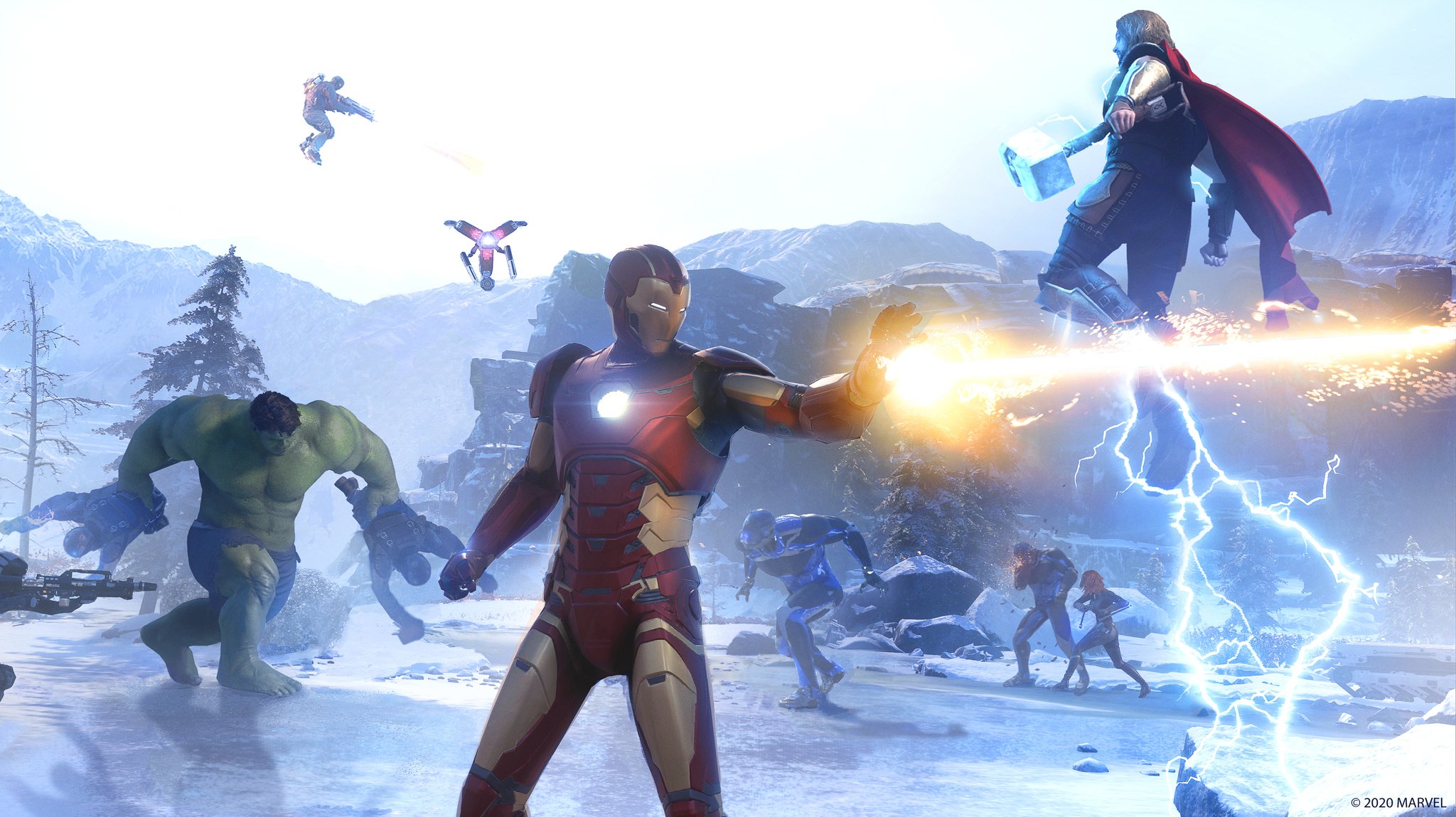
"Gaming companies have already got their share of money via trader when he buys the bundle/promo, and they actually get users who will play their game," docxfamas said, pointing out that a person who seeks out the game via a reseller is more likely to actually play and enjoy it than someone who just happens to end up with a key for it as part of a larger bundle.
When asked about issues with trading, he cited one that few others mentioned, pointing out that "the developer might revoke keys over disputes with the distributor and there is no proper way for users to compensate the other users." As with the mention of Humble revoking keys earlier, at the end of the day, the end recipient has no recourse if anything goes sideways since they didn't go through official channels to procure the product in the first place.
When asked about companies' Terms of Service and their efforts to suppress trading, docxfamas stated that suppression would possibly result in these companies losing him as a customer. "I probably will stop buying bundles altogether if they bring a full stop to game trading via their efforts." He added that he doesn't want the companies to stop their services, but he feels he has the right to do what he wants with the products he's paid for.

This presents an interesting dilemma for companies such as Humble Bundle. Do they dare risk alienating paying customers on the chance that said customers cost them more in reselling operations than they're worth to the bottom line?
"I do understand that reselling can severely damage companies."
I also spoke with the Polish food R&D worker /u/The1WhoKares, who's been trading since 2013. He explicitly mentioned Humble Bundle's banning practices and violation of EU digital reselling and trading regulations. However, he was upfront about the impact trading might have on companies.
"For publishers, game selling companies like Humble Bundle, etc. I don't see a positive at all," he said. "Consumers can trade or buy a game on /r/SteamGameSwap for a fraction of its price instead of buying it for $60 from Steam."
An Australian college student who goes by /u/AmiableAustralian also had thoughts on the negative side of trading. "I know of a few traders who buy dozens of games a day here for possibly the lowest prices around, only to sell them [...] using gray market resellers such as G2A or Kinguin for a tidy profit. It is clear to see how that can lead to the devaluation of game developers' hard-earned creations, and I am very sympathetic to their plight."
He also said something similar to docxfamas, pointing out that reselling crackdowns may have unintended consequences if applied indiscriminately and disproportionately.
"I do understand that reselling can severely damage companies, but I question whether in their attempt to prevent this damage they have overdone it on measures to crack down on reselling, as I question the damage that a small-time trader who only trades their legitimately purchased game for other legitimately purchased ones does."
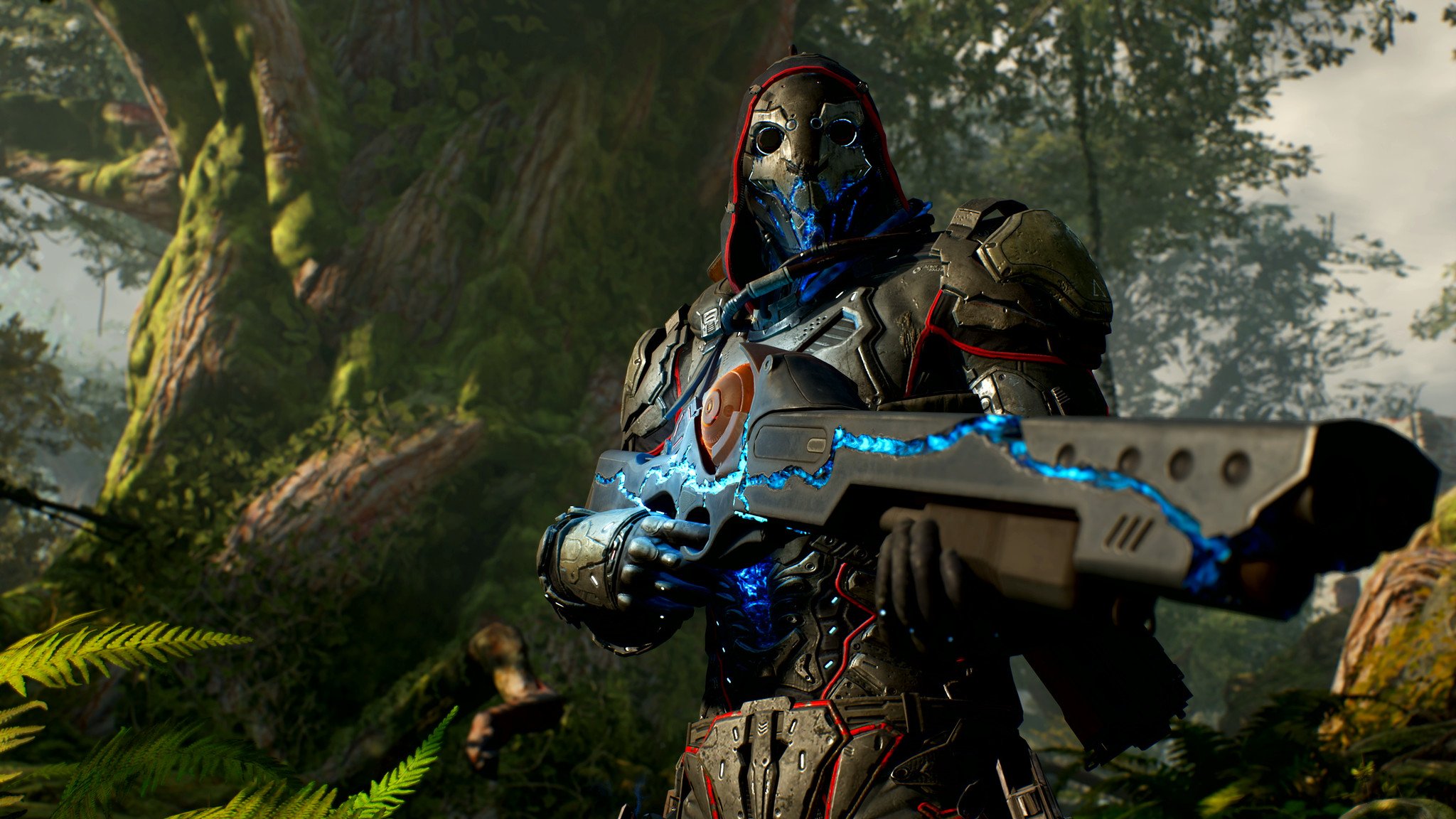
He added a note about his impact on Humble's bottom line. "For me in particular, trading has benefited Humble Bundle, a service I am subscribed to. By being able to trade the games, I am not particularly interested in for ones I am has enabled me to stay subscribed to the service every month, even though more often than not in recent months, I would pause the service."
"I feel like the scene has been taken over by a few people who run a monopoly on trades."
I spoke to many others who highlighted similar items to all of the above, including a Ukrainian freelancer who cited Humble's recent key revocation actions and violations of EU anti-monopoly hearing verdicts as grounds to say that "we are even" when it came to violating the company's terms of service. He said he started trading for personal game acquisitions around 2014 but eventually tried to make a profit as well.
The mention of trading for profit is not only where companies likely see the biggest issue, but so do some other traders because of what it does to the gray market. Meet Denis Joseph, a teacher from Prince Edward Island. Though most interviewees preferred to have their Reddit names used for this article, he went the opposite route.
"I feel like the scene has been taken over by a few people who run a monopoly on trades, taking all the fairly priced options for reselling, while leaving the common scraps for others," Joseph said, stating that he no longer participates in it as a result of the waning appeal.
I spoke with one of those large-scale traders, who replied on condition of anonymity, since revealing either their Reddit or real name in-article would potentially impact them in a tangible way. Off Reddit, they're an Arizonan web designer. On Reddit, they're a big trader of six years.
"Some traders, like me, profit from reselling, but the vast majority of users are just being resourceful and trading for what they want using whatever resources they have, and sometimes saving a buck," they said.
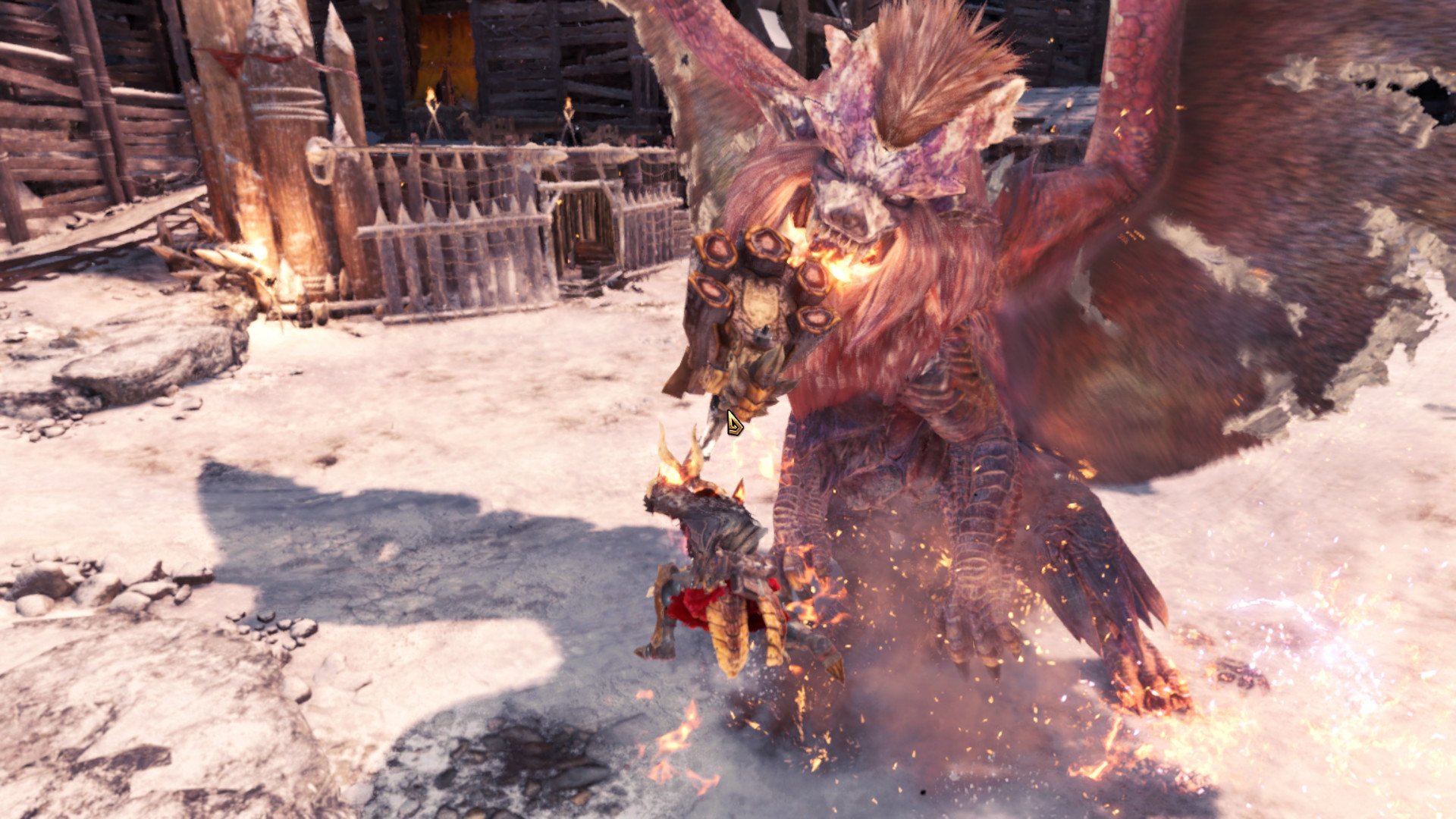
When asked about the morality aspect of violating companies' Terms of Service, they highlighted Humble Bundle's war on resellers. They said they didn't think that the Reddit gray market "impacts companies, game publishers, or game developers enough to be considered a threat or something they should invest resources into combating. If anything, it spreads awareness of sales, bundles, new games, etc., and it allows users who can't afford or obtain certain games to have an option if they have leftovers or unwanted games themselves."
If there was but a single thing that was universally agreed upon by all interviewed, it was that scammers abound and are the worst of the worst. There was palpable disdain from lots when discussing the types of people who would steal from folks just trying to get a new game or piece of software.
The Reddit gray market: Beyond Reddit
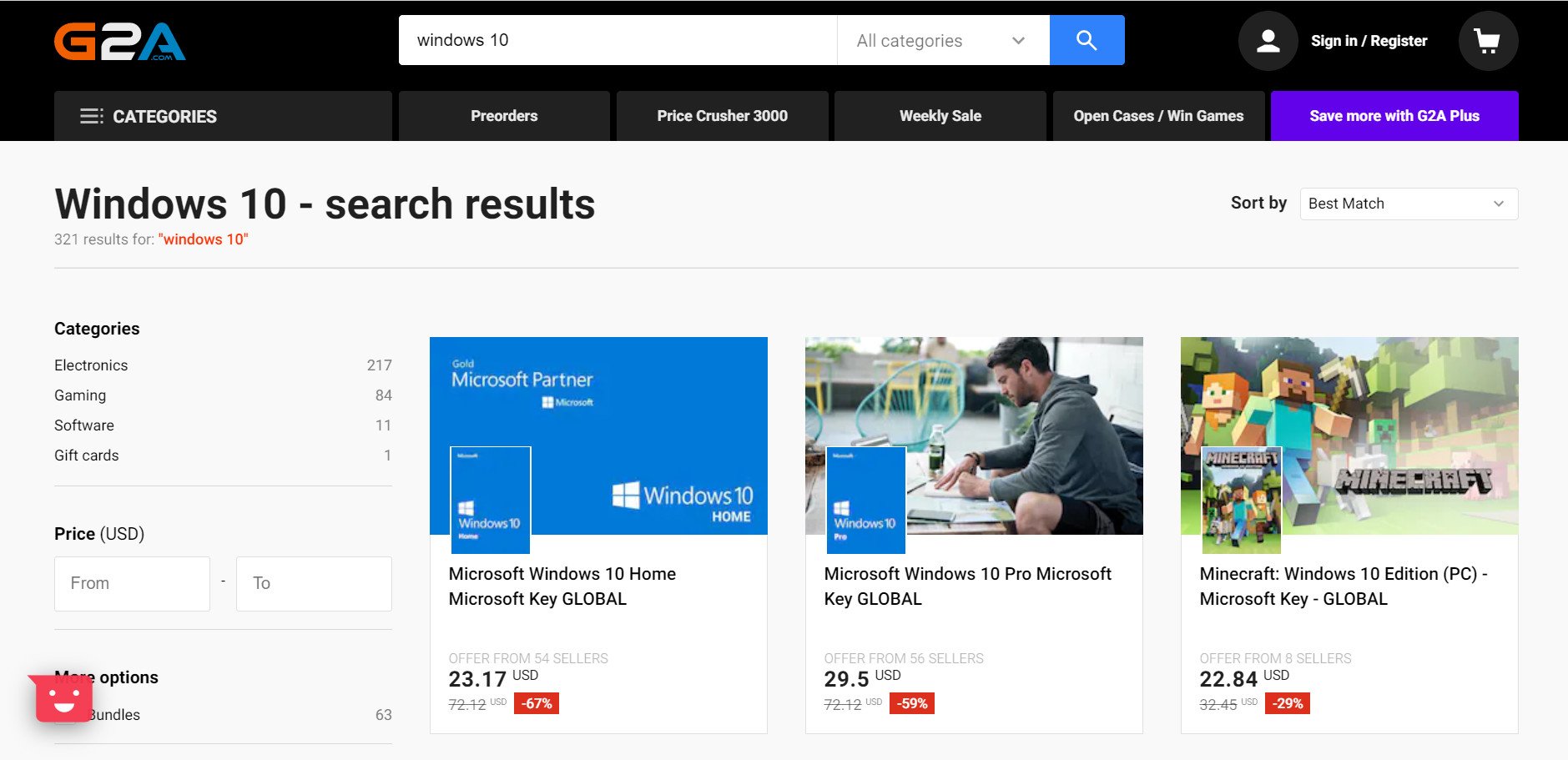
Reddit's not the only game in town. You can get insane software deals on other sites, the difference there being that companies are far more likely to get problematic item listings taken down before any real sales can be accrued.
Take, for example, eBay. If you strike at the right time, you can snag a Windows license or Office key for ridiculously low prices. You can even grab the latest editing software, up to and including sought-after Adobe products, for a few dollars apiece.
But those listings will go away quickly after they're posted, and if you don't get in in time, your opportunity is lost. They tend to originate from sellers in regions that benefit from huge regional pricing differentials, who then use said differential to sell to people in wealthier countries for dirt-cheap rates while still making a profit. Actions such as these are usually caught fast and swiftly moderated.
It makes sense that sites with more regulations and oversight will have more swift moderation. Therein lies the real benefit, and curse, of Reddit's gray market. It's not quite the same as, say, G2A, where the odds of a developer being hurt are high because keys are bought and sold en masse likely via stolen credit cards. Still, it's also not as judiciously monitored as the big sites wholly dedicated to sustainable market operations.
The Reddit gray market: Good, bad, or gray?
It's hard to tell how much corporations truly care about the little guy reselling goods since no company is keen on admitting how much money they're losing to a couple of fellows on eBay or Reddit. Perhaps the cost is negligible, and resellers are little more than a speck on the overall radar. Or, maybe they're a headache too big for certain business entities to feel confident publicly addressing.
But when weighing how corporations feel, it's worth thinking about how much good these gray markets do for ordinary people all across the globe, be they bargain hunters from Prince Edward Island or papermakers from Croatia who have to deal with a new game costing one-tenth of a month's income. Many people aren't in it for commercial purposes; they simply want to afford and enjoy software legally. And when all's said and done, is that truly such a bad thing?
Robert Carnevale is the News Editor for Windows Central. He's a big fan of Kinect (it lives on in his heart), Sonic the Hedgehog, and the legendary intersection of those two titans, Sonic Free Riders. He is the author of Cold War 2395. Have a useful tip? Send it to robert.carnevale@futurenet.com.

